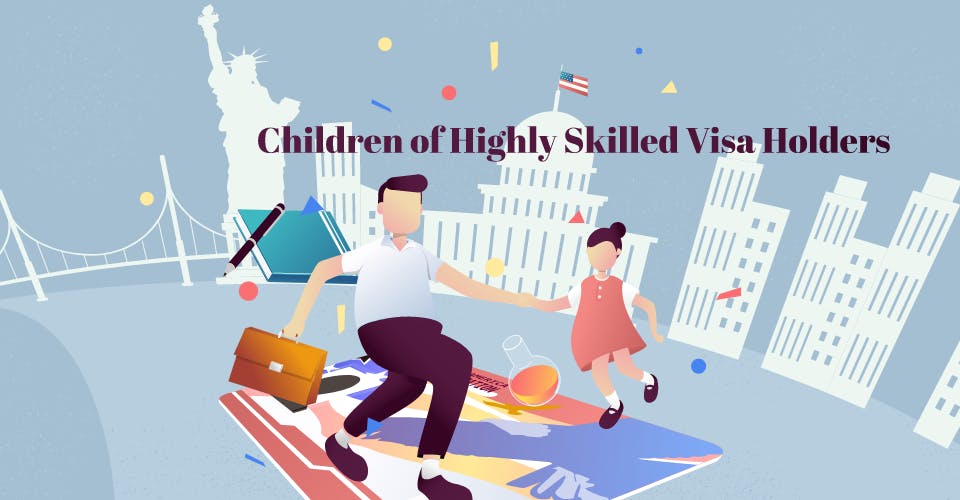One of the current problems that has yet to be resolved in U.S. immigration has to do with children who accompany their parents to the United States via highly skilled visas (i.e. H1-B visas or other employment based visas). Based on U.S. immigration policy, children can come to the United States with their parents as dependents, as long as they are under the age of 21 and unmarried. However, once children reach the age of 21, their legal status in the U.S. becomes precarious. Children either need to qualify for a green card via their “CSPA” age, which I will describe below, or re-enter the United States through some other means.
This is a huge problem in the United States because there is a large population of children who have grown up in the United States, and possibly have the risk of losing their status and having to move back to a foreign country because of the way U.S. immigration currently functions. By one estimate, there are currently more than 200,000 children who have grown up in the U.S. while their parents held visas.[1] Some experts say that the loss of children who cannot remain lawfully in the U.S. is a serious blow to the U.S. talent market and the global competitiveness of young professionals.
The current process that children, which also includes step-children, need to take in order to remain in the U.S. legally before they turn 21 is to have their U.S. citizen parent (or green card holding parent) file an I-130 application on their behalf. This will ensure that that the child has a fair adjustment of status (AOS) case, even if they age out before their I-485 application is decided on. Congress passed the CSPA—Child Status Protection Act in 2002, which freezes a childs age once the petition has been filed, but it still doesn’t protect children who become “adults” and are faced with the difficult decision of leaving the U.S. after their 21st birthday.
Right now, several tech companies including Google. Uber, Amazon, and even Salesforce are putting pressure on the Department of Homeland Security (DHS) to change their ageing out policy so that children don’t have an ultimatum by the time their 21st birthday arrives. Executives would instead like to see a policy where children can remain in the U.S. as dependent visa holders past the age of 21. They believe this will increase the likelihood of parents decision to move to the United States to work in high skill industries.
To hear more about this story, please see the following link.














